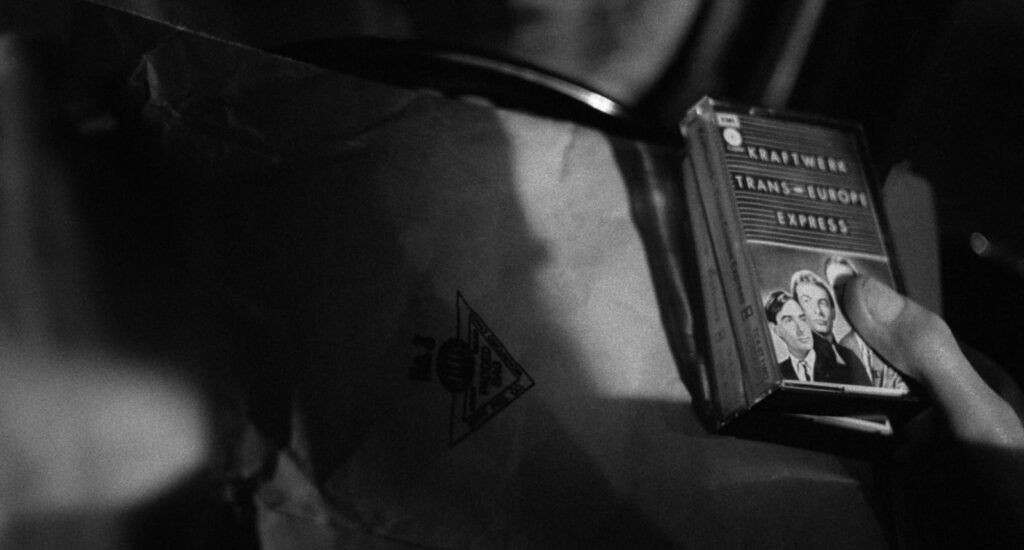
In 1978 and 1979 a number of different Unions went on strike in Great Britain. The strikes were in opposition of the government’s conservative restrictions on pay raises. As a result the infrastructure of Great Britain began to collapse as utilitarian services like garbage pick-up ground to a halt. Hundreds and hundreds of workers suddenly found themselves with nothing to do but to kill time. In this bleak atmosphere British artists thrived on the post-apocalyptic images of the moment. Derek Jarman took to the streets with a 16mm camera while the former Film Editor of Time Out, Chris Petit, directed his first feature film Radio On (1979).
Like his de facto mentor Wim Wenders, Petit constructed a road movie to interrogate the national identity of his homeland. The conceit of this method is that the protagonist, making their way across a country, will meet and interact with people that represent a distinct demographic or sub-culture that is a unique facet to a nation’s identity. Petit even employs Wenders’ method of marrying a jukebox sound track to what is essentially a travelogue montage that reflects the emotional subtext of the protagonist’s experience.
Wim Wenders’ road movies sparked two distinct branches in terms of their influence. Petit’s Radio On represents the more emotionally detached and political vein while Jim Jarmusch’s Stranger Than Paradise (1984) and Down By Law (1986) represent the more humanistic and comical elements and concerns of Wenders’ style. Though Petit and Jarmusch represent a divergence in Wenders’ style, they are unified by the “cool” impulse. That is to say that Wenders, Petit and Jarmusch all embrace and update that tradition in American youth films of the fifties whereby the rock and roll soundtracks determined how “cool” the movie was. Each of these three filmmakers flaunt their “cool” soundtracks like a badge of honor (and rightly so).
Radio On is a really cool film. The music is top notch, Martin Schäfer’s monochrome cinematography is gorgeous and the existentialist narrative is always très chic. If I had seen this film for the first time in middle school I would have been instantly obsessed. However, as an adult, one realizes that the
Jean-Paul Sartre inspired pretensions of the plot is the weakest link in Radio On.
Radio On opens with Robert (David Beames) getting three Kraftwerk cassettes in the mail from his brother on his birthday. This inspires Robert to drive from his apartment in London to his brother’s place in Bristol. Once in Bristol Robert learns of his brother’s suicide and begins to drift about aimlessly. All along the way Petit peppers Robert’s episodic encounters with illusions to New German cinema. This not only renders Radio On as a sort of homage, but brands its existentialism as something distinctly German in origins.
The affectiveness of Radio On has less to do with plot and sociology and much more to do with memory. For so much of Radio On Petit has his camera in the backseat of Robert’s car, either looking ahead out the windscreen or watching the world zip by through the passenger windows. Petit keeps the viewer in the backseat, listening to Kraftwerk, David Bowie, DEVO, or Wreckless Eric like as if the viewer were a child in their parent’s car. This correlation between spectatorship and the narrative content of the image is where all of the emotional power in Radio On lives and is controlled.
